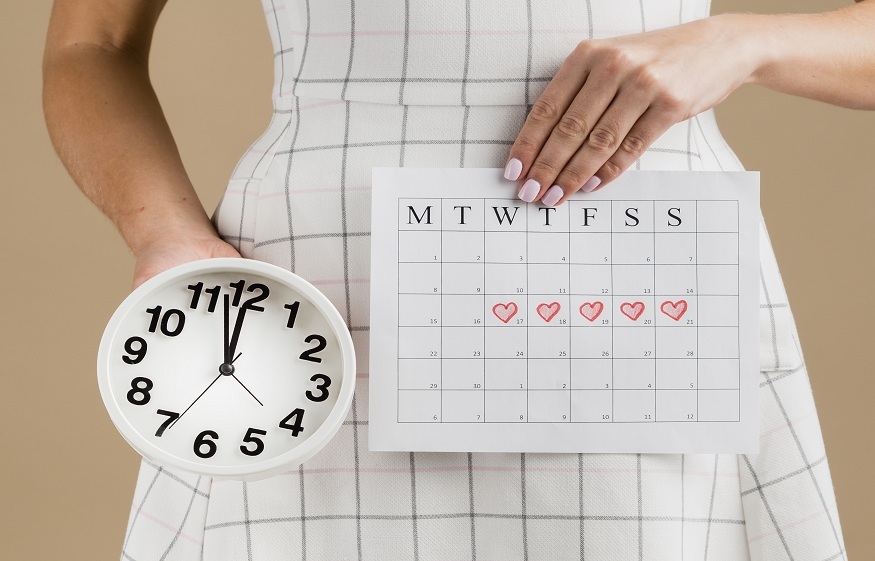For many women, it’s like trying to solve a puzzle when it comes to understanding your body’s natural cycle. Ovulation is one of the most significant aspects of that cycle as this is when an egg leaves your ovary and your chances for conception are highest. Tracking and understanding the ovulation period in women and the related symptoms can be very helpful, whether you’re hoping to conceive or would just like to keep an eye on your reproductive health.
In this blog, we will look more closely at common ovulation symptoms, how to identify them and why paying attention to what your body is telling you is important.
Why is Tracking Ovulation Important?
The ovulation period is important for fertility purposes, but it is also an important aspect of your hormonal balance. A few reasons tracking ovulation is useful are:
- Plan or prevent pregnancy.
- Understand irregular cycles.
- Recognize hormonal changes.
- Spot early signs of conditions like PCOS or thyroid issues.
When you become aware of your body’s signs, you’ll better understand when your fertile window occurs, and you will be able to take more control over your reproductive health. If you are planning pregnancy, experiencing irregular cycles, or simply desire more certainty around your ovulation time, consulting with the best gynecologist in Coimbatore can ease the process.
What are the common signs and symptoms that are associated with ovulation?
Change in cervical mucus
One of the first signs of ovulation is the change in vaginal discharge. During ovulation, cervical mucous will be clear, stretchy, and slippery like raw egg whites. This change in cervical mucus will allow sperm to get where it is going and live longer.
Rise in Basal Body Temperature
Basal body temperature (BBT), which refers to the resting temperature of your body, typically rises slightly after ovulation due to an increase in progesterone. Monitoring your BBT daily, by thermometer, can help pinpoint when ovulation has occurred.
Pelvic or Abdominal Discomfort
Some women experience ovulation pain, also called “mittelschmerz.” This may feel like a dull ache or sharp twinge on one side of the lower abdomen, lasting from a few minutes to a couple of hours.
Heightened Sense of Smell or Taste
Your senses can become more sensitive during ovulation. Many women notice they are more drawn to certain scents or flavors around this time.
Increased Libido
Nature has its way of boosting fertility. It’s very common to feel an increase in sexual desire around the time of ovulation.
Breast Tenderness
Hormonal changes during the ovulation period in women can cause sore or tender breasts. This is similar to what some experience before menstruation.
Light Spotting
Some women may notice very light spotting or discharge tinged with blood. This is caused by the rupturing of the ovarian follicle.
Changes in Mood or Energy Levels
Many women report feeling more energetic, positive, or confident around ovulation due to hormonal surges.
Cervical Position Changes
During ovulation, the cervix shifts upward, feels softer to the touch, and opens slightly. Though not everyone tracks this sign, it’s a reliable indicator for those who do.
How Long Does the Ovulation Period Last?
Ovulation only lasts for about 12 to 24 hours, but your fertile window is longer—usually around six days, starting five days before ovulation and ending the day after. Sperm can live inside the female reproductive tract for up to five days, so timing intercourse during this period is key if you’re trying to conceive.
When should you see a specialist?
If you notice unusual symptoms like heavy spotting, extreme pain during ovulation, or irregular cycles, it’s best to consult the Best Gynecologist in Coimbatore. They can help rule out underlying conditions such as polycystic ovary syndrome (PCOS), endometriosis, or thyroid imbalances.
For expert and compassionate care, the best gynaecology hospital In Coimbatore offers advanced diagnostic tools and personalized treatment plans to support women’s health at every stage.
Can You Get Pregnant Outside Ovulation?
The chances of getting pregnant are highest during ovulation, but since sperm can live in the body for up to five days, having intercourse a few days before ovulation can also lead to pregnancy.
How regular is ovulation?
For women with a 28-day cycle, ovulation usually occurs around day 14. But cycles can vary, so keeping track over a few months gives a better idea.
Does stress affect ovulation?
Yes, stress can disrupt hormone levels and delay ovulation. Maintaining a balanced lifestyle is important for reproductive health.
Important Takeaway
Understanding the signs of ovulation can make a big difference in a woman’s journey—whether it’s planning a pregnancy, avoiding one, or simply keeping track of reproductive health. Every woman’s body is unique, and while some may notice clear changes like cervical mucus or mild cramping, others may experience only subtle shifts. Paying attention to these natural cues not only builds body awareness but also helps in making informed health decisions.






Be First to Comment